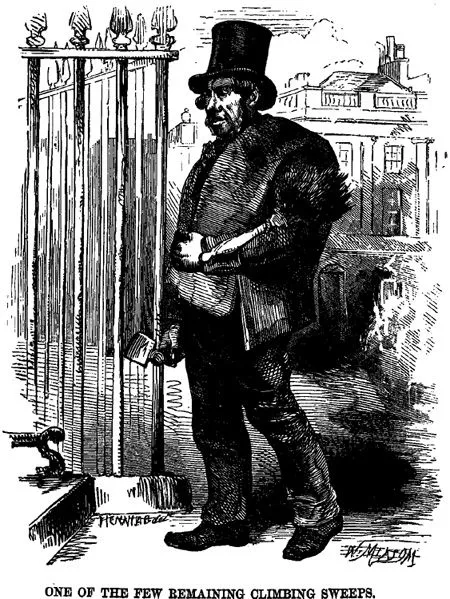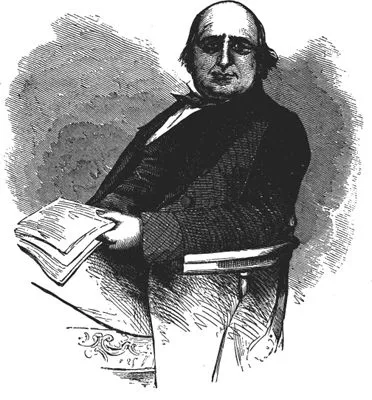London Labour and the London Poor: Selection (Classics)


LONDON LABOUR AND THE LONDON POOR
HENRY MAYHEW, journalist and social investigator, humorist, dramatist, novelist, author of works of travel and popular instruction, was born in 1812 and died in 1887. The son of a London solicitor, he was educated at Westminster School, from which he eventually ran away. Mayhew then went to sea and travelled to India before entering his father’s office, which, however, he soon quitted to embark on a long and prolific but often penurious literary career. He started (with an old schoolfriend) Figaro in London, a pungent illustrated weekly, in 1831, wrote a very successful farce, The Wandering Minstrel (1834), and was one of the group which founded Punch in 1841; but in 1845 he severed his connection with the journal, which became increasingly conformist. The voluminous survey known as London Labour and the London Poor began publication in 1849 in the Morning Chronicle, and in 1851–2 bound volumes of the collected, uncompleted work were issued. Further publication was interrupted by litigation and not resumed until he found a new publisher in 1861, although in 1856 Mayhew embarked on another ambitious series of studies entitled The Great World of London, part of which appeared in 1862 as The Criminal Prisons of London. Mayhew’s other noteworthy book is the readable German Life and Manners (1864). His work is distinguished by vivid reportage, unsentimental sympathy, humour and an eye for detail. During his life Mayhew was an outspoken advocate of social reform and a trenchant critic of laissez-faire doctrine, but even before his death his work had sunk into the obscurity in which it remained until interest in it revived during the 1940s.
VICTOR NEUBURG was born in Sussex in 1924 and educated at Varndean and at the universities of London and Leicester. At one time a soldier and schoolmaster, he is a former Senior Lecturer at the School of Librarianship, Polytechnic of North London (now the University of North London). He has been a visiting professor at State College, Buffalo, Dalhousie University, Nova Scotia, and Ruhr University, Bochum. In the summer of 1984 he was Simon Foster Haven Fellow of the American Antiquarian Society. His publications include Popular Education in Eighteenth Century England (1971), Popular Literature (Penguin, 1977), The Batsford Companion to Popular Literature (1982) and A Guide to the Western Front (Penguin, 1988).
Victor Neuberg is married, with a wife inured to his enthusiasm for book collecting, and has a daughter married to a doctor, and two granddaughters. Henry Mayhew has been an enthusiasm of his for many years.

HENRY MAYHEW
LONDON LABOUR AND THE LONDON POOR
SELECTIONS MADE AND INTRODUCED BY
VICTOR NEUBURG
BookishMall.com
BookishMall.com
Published by the Penguin Group
Penguin Books Ltd, 80 Strand, London WC2R 0RL, England
Penguin Putnam Inc., 375 Hudson Street, New York, New York 10014, USA
Penguin Books Australia Ltd, 250 Camberwell Road, Camberwell, Victoria 3124, Australia
Penguin Books Canada Ltd, 10 Alcorn Avenue, Toronto, Ontario, Canada M4V 3B2
Penguin Books India (P) Ltd, 11 Community Centre, Panchsheel Park, New Delhi – 110 017, India
Penguin Books (NZ) Ltd, Cnr Rosedale and Airborne Roads, Albany, Auckland, New Zealand
Penguin Books (South Africa) (Pty) Ltd, 24 Sturdee Avenue, Rosebank 2196, South Africa
Penguin Books Ltd, Registered Offices: 80 Strand, London WC2R 0RL, England
www.penguin.com
This selection first published 1985
19
Selection and editorial material copyright © Victor Neuburg, 1985
All rights reserved
Except in the United States of America, this book is sold subject
to the condition that it shall not, by way of trade or otherwise, be lent,
re-sold, hired out, or otherwise circulated without the publisher’s
prior consent in any form of binding or cover other than that in
which it is published and without a similar condition including this
condition being imposed on the subsequent purchaser
EISBN: 978–0–141–90746–8
For Alison, Anne, Barbara, Caroline, Katherine, Stella,
– the ladies in my life.
And, of course, for Brian – best of friends –
who shares some of them with me.
CONTENTS
Acknowledgements
Henry Mayhew: A Chronology
Introduction
Bibliography
Mayhew’s Collaborators
Note on the Text
LONDON LABOUR AND THE LONDON POOR
Volume One
Volume Two
Volume Three
Volume Four: Those That Will Not Work
ACKNOWLEDGEMENTS
As ever I am more grateful than I can say to Barbara Gilbert, who has done her best to keep me on the path of stylistic virtue, and also typed an untidy manuscript impeccably. Gratitude as well to my wife Anne, long-suffering as ever in the face of a rising tide of books and papers. To Frank Cass and Michael Zaidner my thanks for their interest and the speedy unearthing of an indispensable book which they presented to me. And, to Annie Pike of Penguin Books, a special thankyou for invaluable help.

HENRY MAYHEW.
HENRY MAYHEW: A CHRONOLOGY
1812 | Born 25 November, fourth surviving son of Joshua Dorset Joseph Mayhew, a successful solicitor, and Mary Ann (née Fenn). |
1827 | Runs away from Westminster School and is sent to India as a midshipman. |
1831–9 | Involved in various theatrical and journalistic projects. |
1834 | His play The Wandering Minstrel is produced. |
1835 | Becomes Editor of Figaro in London (magazine founded in 1831). This post relinquished in 1839. Probably meets Douglas Jerrold (1803–57, man of letters) and W. M. Thackeray in Paris. |
1841 | First number of Punch, 17 July. Mayhew is its Editor until 1842 and maintains contact with the magazine until 1845. |
1844 | Marries Jane Jerrold. |
1846 | Declared bankrupt. |
1847 | Bankruptcy suit. |
1851–2 | First edition of London Labour and the London Poor, published serially. Lawsuit with the printer, George Woodfall. |
1854 | Mayhew in Germany. |
1858 | Father dies. |
1859 | Editor of Morning News for the month of January – after which it ceases publication. |
1861–2 | Enlarged edition of London Labour and the London Poor published in four volumes. Mayhew in Germany again in 1861. |
1865 | Second printing of the four-volume edition. |
1880 | Wife Jane Jerrold Mayhew dies on 26 February. |
1887 | Mayhew dies of bronchitis on 25 July. |
INTRODUCTION
I
It is strange that more is not known about the life of Henry Mayhew. He was a journalist, occasionally a minor dramatist, and a man of letters rubbing shoulders on friendly and even intimate terms with some of the best-known writers of his day; he married the daughter of Douglas Jerrold, a prolific and popular writer;1 for a time he was Editor of the newly founded magazine Punch;2 and yet Mayhew eludes the biographer. No cache of surviving letters is known and there was no contemporary biography, nor did he essay an autobiography. In the memoirs and biographies of his contemporaries he is of course mentioned, but the picture of him that has come down to posterity remains essentially shadowy.
The one indispensable guide to his life and work is Anne Humpherys’s Travels into the Poor Man’s Country (1977). It contains pretty well all the known facts about Mayhew – and there are not many of them! His father was a self-made successful lawyer, Joshua Dorset Joseph Mayhew, and his mother’s maiden name was Mary Ann Fenn. Henry, one of seventeen children, was sent to Westminster School in 1822, and while there showed himself to be brilliant but indolent, always full of new projects and ideas but temperamentally unable or unwilling to bring them to fruition. Having refused to be flogged by the Headmaster, Dr Goodenough, for some misdemeanour he ran away from school.





1 comment